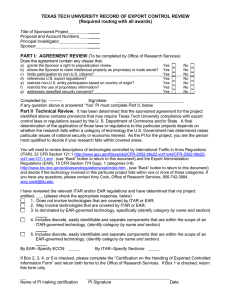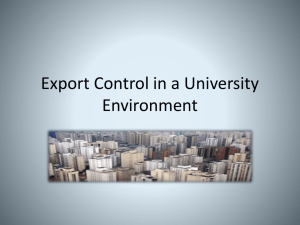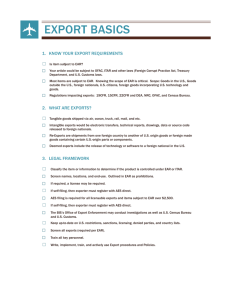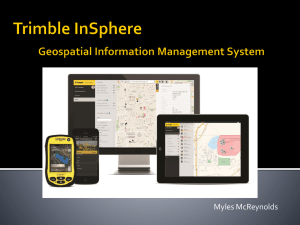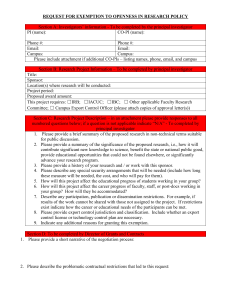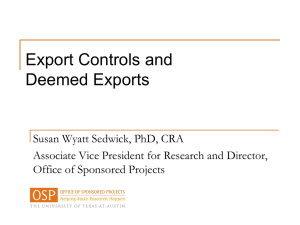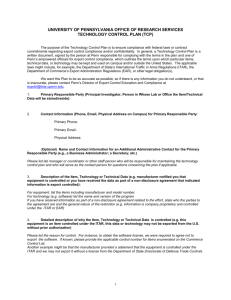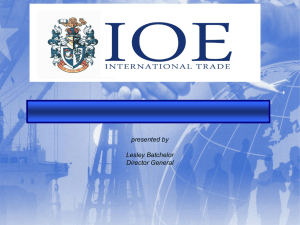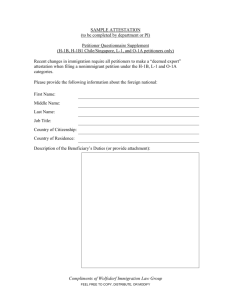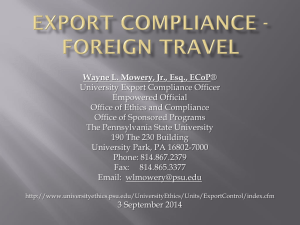Export Controls - Rose
advertisement
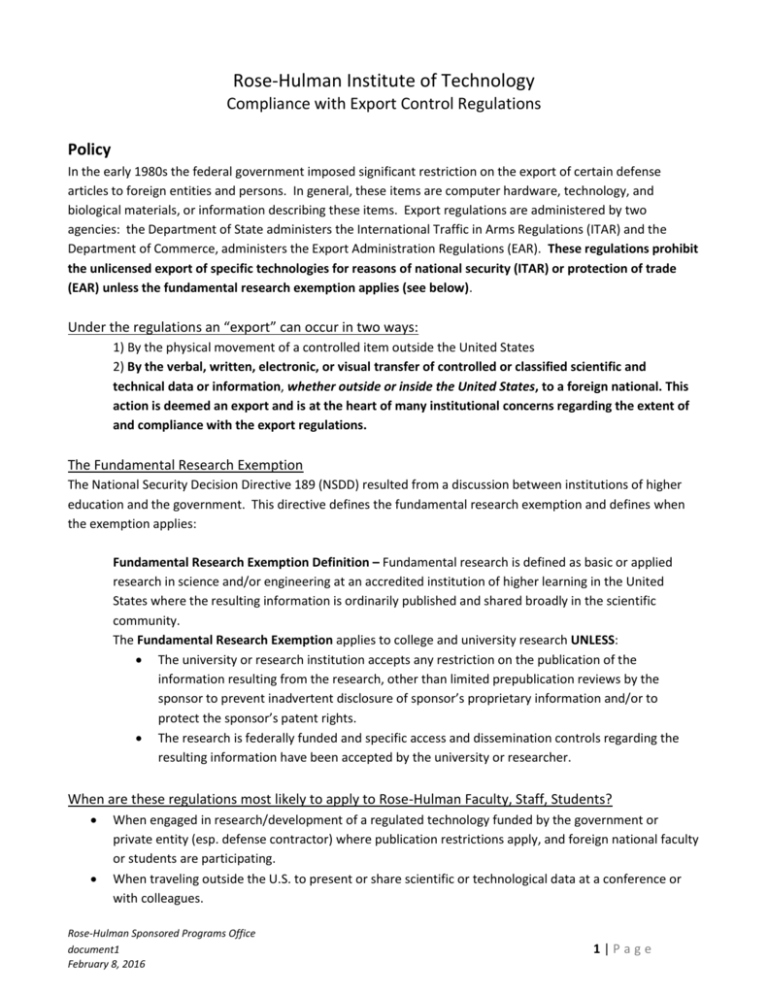
Rose-Hulman Institute of Technology Compliance with Export Control Regulations Policy In the early 1980s the federal government imposed significant restriction on the export of certain defense articles to foreign entities and persons. In general, these items are computer hardware, technology, and biological materials, or information describing these items. Export regulations are administered by two agencies: the Department of State administers the International Traffic in Arms Regulations (ITAR) and the Department of Commerce, administers the Export Administration Regulations (EAR). These regulations prohibit the unlicensed export of specific technologies for reasons of national security (ITAR) or protection of trade (EAR) unless the fundamental research exemption applies (see below). Under the regulations an “export” can occur in two ways: 1) By the physical movement of a controlled item outside the United States 2) By the verbal, written, electronic, or visual transfer of controlled or classified scientific and technical data or information, whether outside or inside the United States, to a foreign national. This action is deemed an export and is at the heart of many institutional concerns regarding the extent of and compliance with the export regulations. The Fundamental Research Exemption The National Security Decision Directive 189 (NSDD) resulted from a discussion between institutions of higher education and the government. This directive defines the fundamental research exemption and defines when the exemption applies: Fundamental Research Exemption Definition – Fundamental research is defined as basic or applied research in science and/or engineering at an accredited institution of higher learning in the United States where the resulting information is ordinarily published and shared broadly in the scientific community. The Fundamental Research Exemption applies to college and university research UNLESS: The university or research institution accepts any restriction on the publication of the information resulting from the research, other than limited prepublication reviews by the sponsor to prevent inadvertent disclosure of sponsor’s proprietary information and/or to protect the sponsor’s patent rights. The research is federally funded and specific access and dissemination controls regarding the resulting information have been accepted by the university or researcher. When are these regulations most likely to apply to Rose-Hulman Faculty, Staff, Students? When engaged in research/development of a regulated technology funded by the government or private entity (esp. defense contractor) where publication restrictions apply, and foreign national faculty or students are participating. When traveling outside the U.S. to present or share scientific or technological data at a conference or with colleagues. Rose-Hulman Sponsored Programs Office document1 February 8, 2016 1|Page Procedure Primary responsibility for compliance with export control laws and regulations rests with the Principal Investigator (PI) for the research/development project. The Sponsored Programs Office will assist the PI in fulfilling those responsibilities. Before beginning any research project that may be subject to export control laws and regulations, the Principal Investigator must notify the Office of Sponsored Programs to commence a review of the project to develop a plan for ensuring protection of the controlled technology and technical data. For a list of controlled technologies visit the following web sites: Export Administration Regulations: http://www.access.gpo.gov/bis/ear/ear_data.html (see part 774) International Traffic in Arms Regulations: http://pmddtc.state.gov/regulations_laws/itar_official.html (see ITAR Part 121) Please direct questions related to export control regulations to the Director of Sponsored Programs (x8454). Rose-Hulman Sponsored Programs Office document1 February 8, 2016 2|Page
